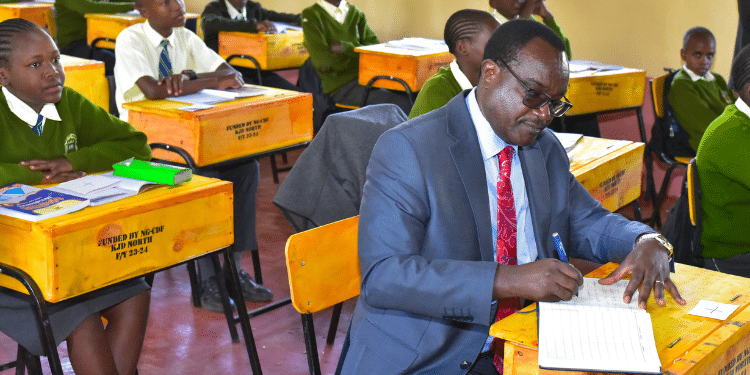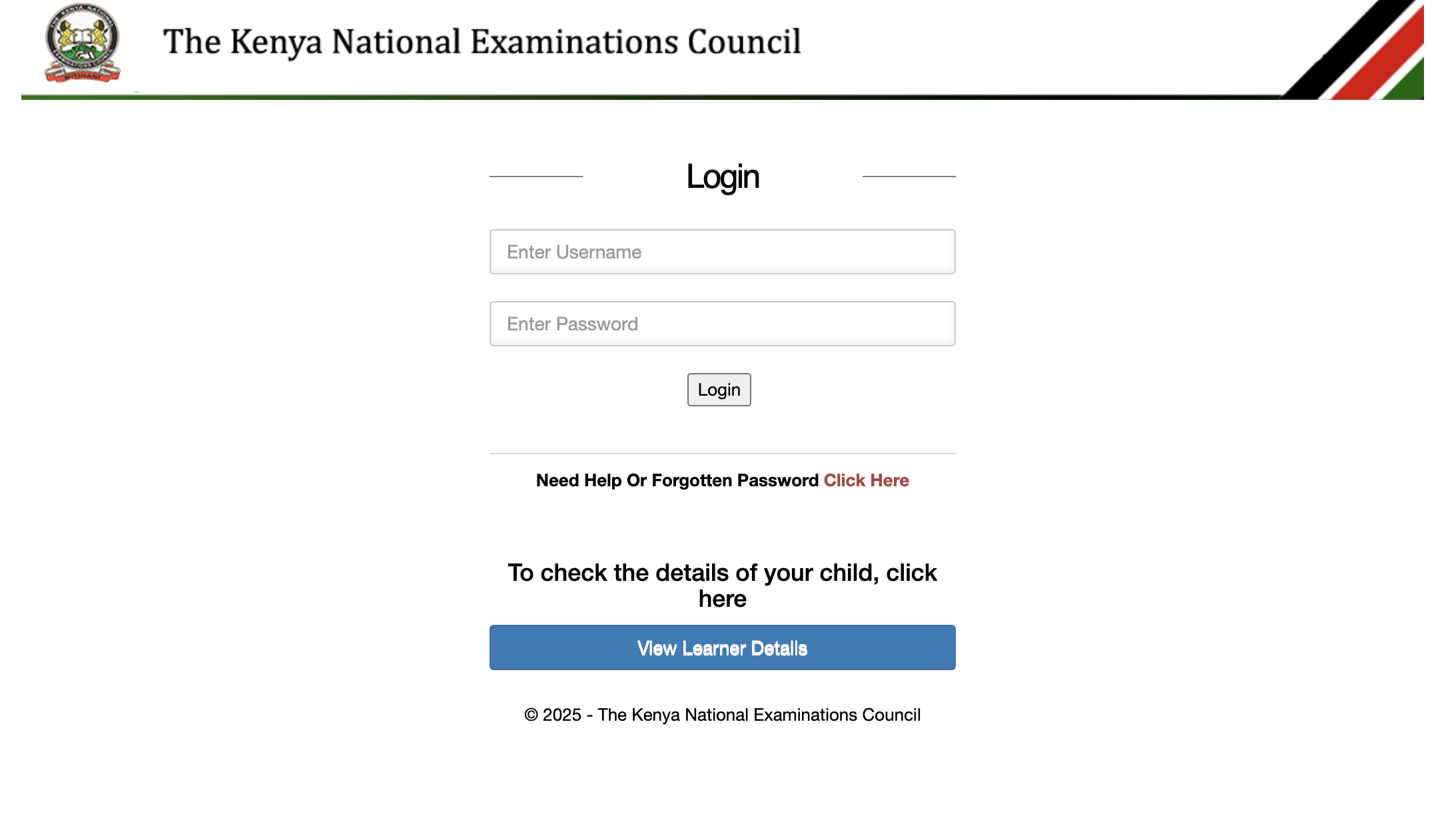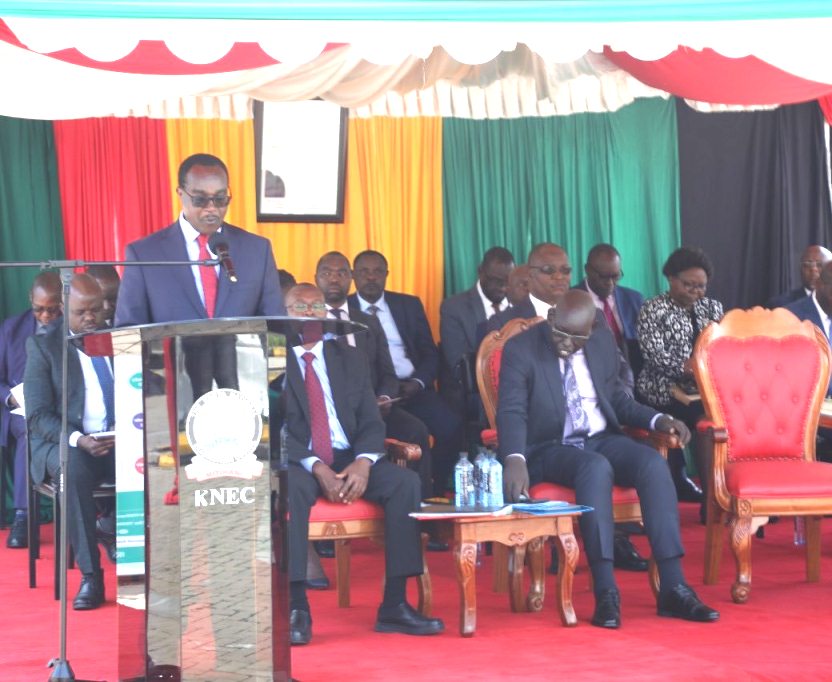
Education Cabinet Secretary Julius Ogamba addressed the public’s concerns on Friday, January 10, about the possibility of adjusting the cut-off grade for university admission after the 2024 Kenya Certificate of Secondary Education (KCSE) results. With an increasing number of students qualifying for university entry, questions have arisen on whether the current grade threshold will be revised for the incoming cohort.
During a press conference, Ogamba made it clear that the Ministry of Education has no plans to change the current university entry grade of C+ for public universities, despite a surge in students meeting the criteria. The number of students who achieved a C+ and above in the 2024 KCSE exams has risen significantly from 201,000 in 2024 to 246,000 in 2025.
“The number of students joining universities in 2025 has risen from 201,000 to 246,000, meaning universities will accommodate more students. We will retain the C+ grade as the cut-off for admission to public universities,” Ogamba stated confidently.
The Education CS’s remarks sought to provide clarity amid concerns from students, parents, and education stakeholders about the challenges of accommodating an increased number of university-bound students.
With more students qualifying for university admission, Ogamba acknowledged the strain this could place on public universities. However, he assured the public that measures are in place to ensure institutions remain equipped to handle the growing demand.
“We will allocate the necessary financial and human resources to ensure universities are prepared for the increased intake of students while continuing to apply the university funding model, with necessary amendments,” Ogamba said.
The Education CS highlighted that the government is committed to improving the student-based university funding model, which has faced criticism since its implementation.
The 2024 KCSE cohort will be the third group of students to join universities under the student-centered funding model, a system that allocates resources to universities based on the number of students admitted. This model has drawn significant criticism due to claims that it unfairly selects students for funding based on their financial backgrounds, which some argue is discriminatory.
Ogamba addressed these concerns, reassuring the public that the government would continue to adjust the funding model as needed, taking into account various stakeholder recommendations.
“The funding model will remain student-centered, and we will review all concerns, incorporate feedback, and establish a system that is fit for purpose,” he added.
In December 2024, the High Court ruled that the student-centered university funding model was unconstitutional and discriminatory. The court found that the variable scholarship and loan funding (VSLF) model was biased, particularly in how it categorized students based on perceived financial need.
Justice Chacha Mwita, who delivered the ruling, criticized the model for its reliance on perceived financial capabilities, stating that it was unrealistic and unfair to classify someone earning Ksh 70,000 a month as "needy," considering the country's tax structure.
Justice Mwita emphasized that all individuals should be treated equally before the law, and the government is prohibited from discriminating against any individual on any grounds.
As Kenya prepares for the 2024 KCSE results and the subsequent university intake, Education Cabinet Secretary Julius Ogamba’s statements assure the public that the current cut-off grade of C+ will remain in place. Meanwhile, the government remains focused on addressing concerns over the university funding model, which will undergo further adjustments to ensure a fair and equitable distribution of resources for students across the country.





